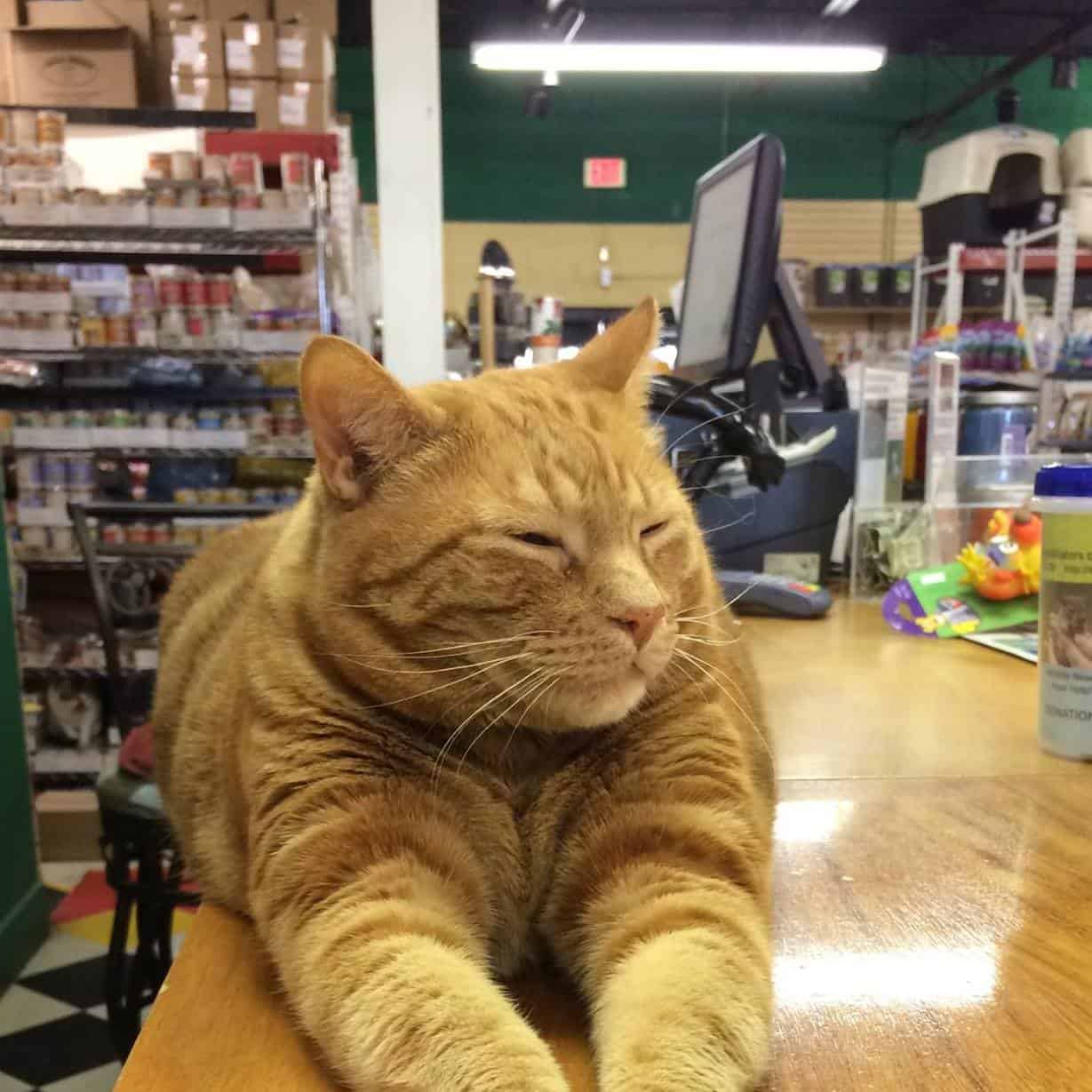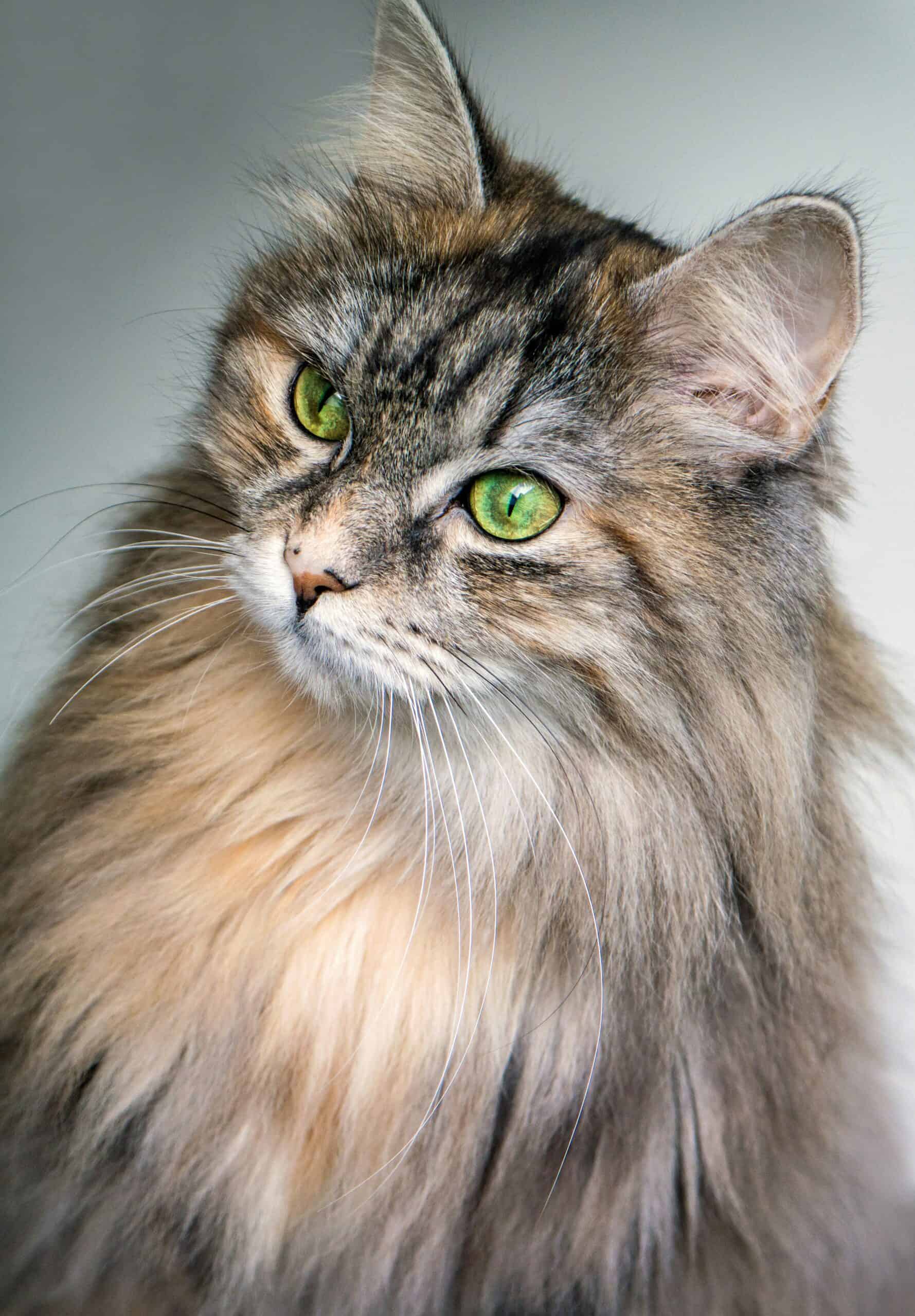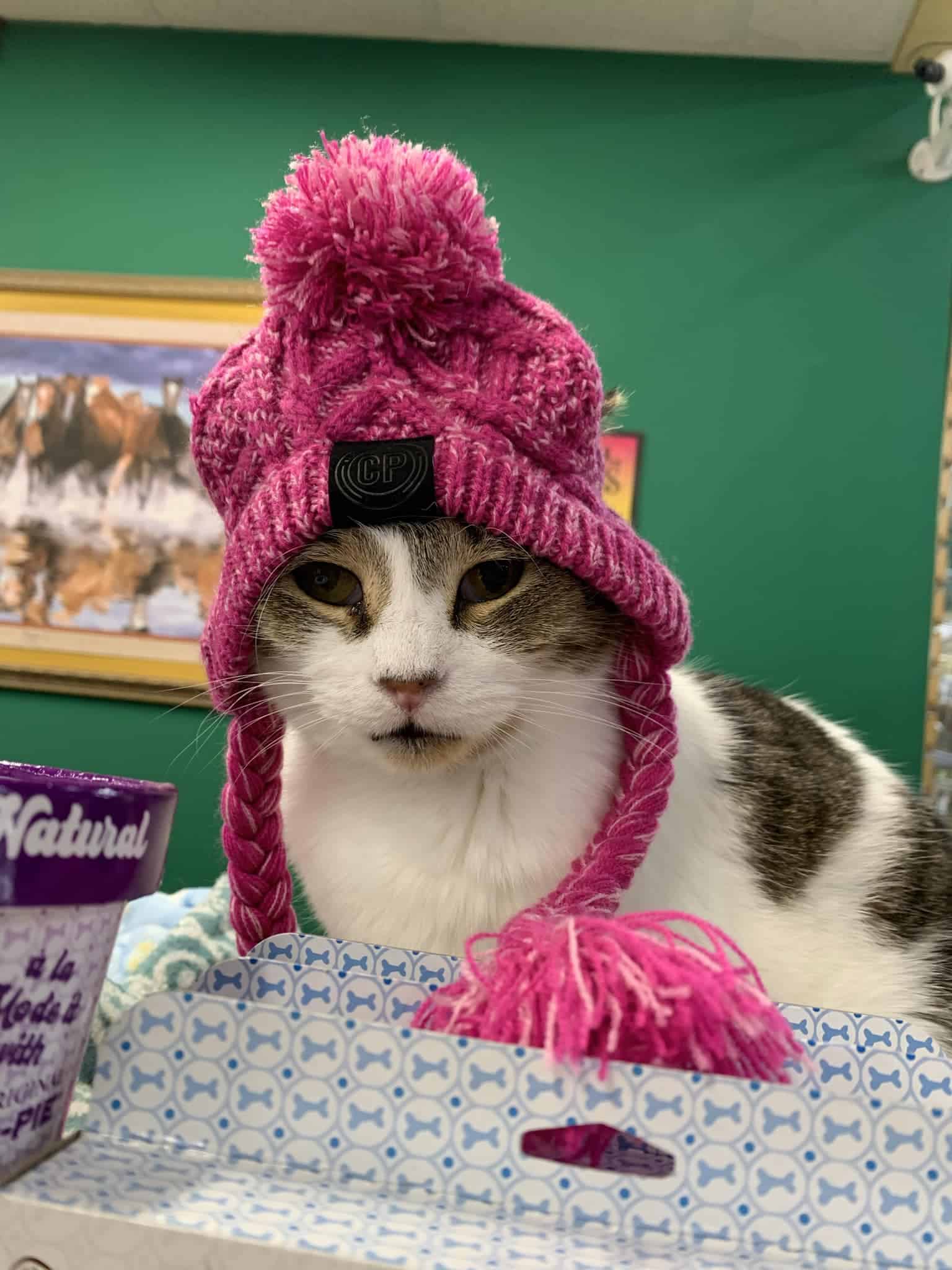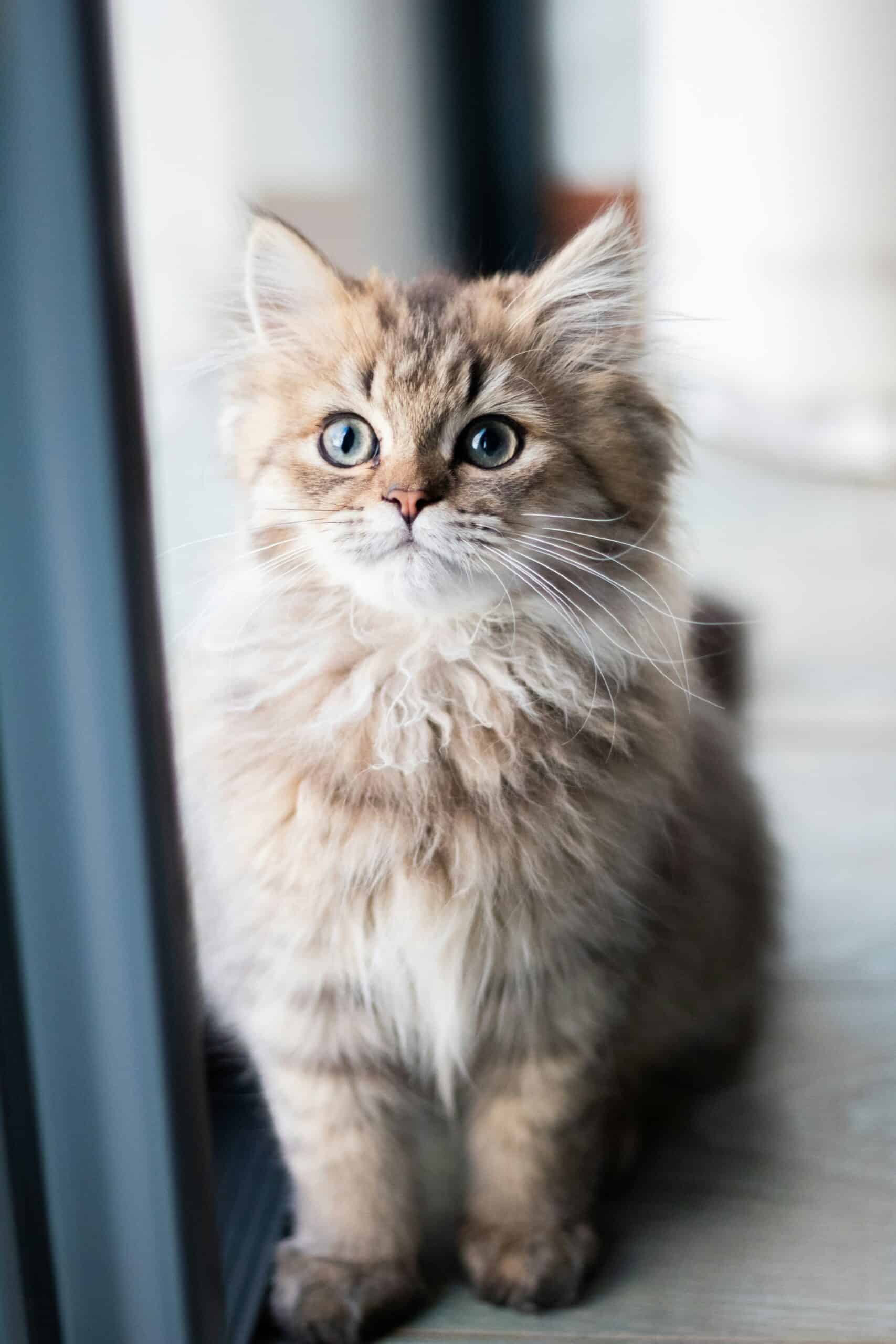Cats are obligate carnivores, which means their diet requires specific nutrients to thrive and maintain optimal health. Providing your feline companion with a well-balanced diet is essential for their overall well-being. In this article, we will explore the key nutrients that are crucial to your cat’s nutrition and discuss their importance in detail.

The Importance of Nutrition in Your Cat’s Health
Proper nutrition plays a vital role in maintaining a cat’s health and preventing various diseases. A balanced diet ensures that your cat’s body receives the essential nutrients it needs to function correctly. Good nutrition supports a strong immune system, healthy digestion, an ideal body weight, and proper organ function.
When it comes to feline nutrition, it is crucial to understand the specific dietary requirements of cats. Cats are obligate carnivores, which means they require a diet that is primarily meat-based. Their bodies are designed to metabolize and derive nutrients from animal proteins efficiently.
The Role of Proteins in Cat Nutrition
Proteins are the building blocks of a cat’s body. They are required for essential functions such as growth, repair, and maintenance of body tissues. Cats require high-quality animal-based proteins in their diet, as they contain vital amino acids that cats cannot produce on their own. Meat from sources like chicken, fish, and turkey provides the necessary proteins to support your cat’s overall health.
In addition to being a source of amino acids, proteins also provide energy for cats. Unlike humans, cats rely heavily on proteins as their primary energy source. This is because their bodies have evolved to efficiently convert proteins into energy through a process called gluconeogenesis.
The Significance of Fats in a Cat’s Diet
Fats are a concentrated source of energy for cats and are essential in their diet. They provide insulation, help absorb certain vitamins, and support healthy skin and coat. Additionally, fats contribute to the palatability of a cat’s food, making it more enjoyable for them to eat. Ensure that the food you choose for your cat contains a moderate amount of animal-based fats to meet their nutritional needs.
It is important to note that not all fats are created equal. Cats require specific types of fats, such as omega-3 and omega-6 fatty acids, which are essential for their overall health. These fatty acids play a crucial role in maintaining a cat’s immune system, promoting healthy brain function, and reducing inflammation.
Understanding the Need for Carbohydrates
While cats are primarily carnivores, carbohydrates also play a role in their nutrition. While cats have a limited ability to utilize carbohydrates compared to other animals, small amounts of easily digestible carbohydrates can provide a source of energy. High-quality cat foods often incorporate carbohydrates from sources like whole grains and vegetables in moderation to support a balanced diet.
Carbohydrates can also serve as a source of dietary fiber, which is essential for maintaining a healthy digestive system in cats. Fiber helps regulate bowel movements, prevent constipation, and promote the growth of beneficial gut bacteria.
In conclusion, providing your cat with a nutritionally balanced diet is essential for their overall health and well-being. Understanding the role of proteins, fats, and carbohydrates in a cat’s diet can help you make informed choices when selecting their food. Remember to consult with your veterinarian to ensure that your cat’s specific nutritional needs are being met.

Vitamins and Minerals: Essential Elements of Cat Nutrition
Vitamins and minerals are micronutrients that cats require in small quantities to maintain good health. These nutrients play vital roles in various bodily functions and help support immune function, growth, and overall well-being.
When it comes to cat nutrition, vitamins and minerals are essential components that should not be overlooked. These micronutrients are involved in numerous physiological processes that are crucial for your cat’s health and well-being. From energy production to maintaining healthy vision and supporting a robust immune system, vitamins are the unsung heroes of your cat’s diet.
The Vital Role of Vitamins in a Cat’s Diet
Vitamins are essential for cats as they contribute to a range of functions, including energy production, maintenance of healthy vision, and support for a healthy immune system. Vitamin A, for example, is important for eye health, while Vitamin D supports bone health. Cats typically obtain the necessary vitamins through a balanced diet, but in some cases, additional supplements may be recommended by a veterinarian.
One of the most important vitamins for cats is Vitamin B complex. This group of vitamins, including B1 (thiamine), B2 (riboflavin), B3 (niacin), B5 (pantothenic acid), B6 (pyridoxine), B7 (biotin), B9 (folic acid), and B12 (cobalamin), plays a crucial role in energy metabolism. They help convert food into energy, ensuring that your cat has the vitality to play, explore, and thrive.
Another vital vitamin for cats is Vitamin E, a powerful antioxidant that protects cells from damage caused by free radicals. This vitamin also plays a role in maintaining healthy skin and coat, promoting a glossy and lustrous appearance. Cats with a deficiency in Vitamin E may experience dry, flaky skin and a dull coat.
Essential Minerals for Feline Health
Minerals are essential for normal body functioning and play crucial roles in maintaining overall health. Some minerals, such as calcium and phosphorus, are vital for strong bones and teeth. Others, like iron and zinc, are necessary for the proper functioning of enzymes and maintaining healthy skin and fur. A well-formulated cat food will contain appropriate amounts of essential minerals to meet your cat’s nutritional requirements.
Calcium, for example, is not only essential for bone health but also plays a role in muscle function and blood clotting. It is crucial for kittens during their growth and development stages. Phosphorus, on the other hand, works in conjunction with calcium to support bone health and is also involved in energy metabolism.
Iron is another important mineral for cats as it is a component of hemoglobin, the protein responsible for transporting oxygen in the blood. Without sufficient iron, cats may experience fatigue, weakness, and anemia. Zinc, on the other hand, is involved in various enzymatic reactions and plays a role in maintaining a healthy immune system.
While a balanced diet is typically sufficient to provide cats with the necessary vitamins and minerals, it is important to consult with a veterinarian to ensure that your cat’s specific nutritional needs are being met. They can provide guidance on the appropriate diet and, if necessary, recommend supplements to address any deficiencies.
Water: The Overlooked Nutrient in Cat Nutrition
Water is often overlooked as a crucial nutrient in cat nutrition. Cats have a low thirst drive compared to other animals, and dehydration can quickly become a concern. Providing your cat with fresh, clean water at all times is essential to prevent dehydration and support proper kidney function.
But why is water so important for cats? Let’s delve deeper into the topic and understand the significance of hydration in feline health.
Understanding the Importance of Hydration in Cats

Hydration is vital for a cat’s overall health. Water plays a multitude of roles in their body, contributing to various physiological functions. For starters, water helps transport essential nutrients throughout the body, ensuring that all organs and tissues receive the nourishment they need to function optimally.
In addition to nutrient transport, water also aids in digestion. It helps break down food and facilitates the absorption of nutrients in the digestive tract. Without adequate hydration, cats may experience digestive issues, such as constipation or even malabsorption of nutrients.
Furthermore, water plays a crucial role in regulating body temperature. Cats are known for their ability to adapt to different environments, but they still rely on water to cool down when they get too hot. Through panting and sweating through their paws, cats can dissipate heat and maintain a stable body temperature.
Moreover, proper hydration supports the optimal functioning of various organs, including the kidneys. Adequate water intake helps flush out waste products and toxins from the body, reducing the risk of kidney disease and urinary tract issues.
Encouraging your cat to drink water is essential, especially considering their low thirst drive. One way to do this is by providing fresh water in multiple locations throughout your home. Cats are more likely to drink if water is easily accessible and readily available.
Another strategy to increase your cat’s water intake is to incorporate wet cat food into their diet. Wet cat food has a higher water content compared to dry food, providing an additional source of hydration. However, it’s important to note that wet food should not replace water entirely, as cats still need access to fresh water at all times.
Signs of Dehydration in Cats
Recognizing the signs of dehydration in cats is crucial for their well-being. By being vigilant, you can identify potential hydration issues early on and seek appropriate veterinary care. Some common signs of dehydration in cats include decreased urination, dark-colored urine, dry gums, loss of skin elasticity, and lethargy.
If you notice any of these signs in your cat, it’s important to consult with a veterinarian immediately. They will be able to assess your cat’s hydration status and provide the necessary treatment, which may include fluid therapy to rehydrate your feline friend.
In conclusion, water is an often overlooked but essential nutrient in cat nutrition. By understanding the importance of hydration, recognizing the signs of dehydration, and taking proactive measures to ensure your cat has access to fresh water, you can help support their overall health and well-being.
Special Nutritional Needs of Cats at Different Life Stages
Cats have varying nutritional needs at each stage of their lives. Understanding these needs can help ensure that your cat receives the appropriate nutrients for optimal health and well-being.
Nutritional Needs of Kittens

Kittens require a higher amount of protein, fat, and certain vitamins and minerals to support their rapid growth and development. Nutrient-dense kitten food specifically formulated for their needs should be provided until they reach adulthood.
Adult Cats: Maintaining a Balanced Diet
Adult cats require a balanced diet to maintain proper weight, energy levels, and overall health. Feeding them a high-quality cat food formulated for adult cats, based on their specific needs, is crucial. Regular veterinary check-ups can help ensure their dietary requirements are met as they age.
Senior Cats: Special Dietary Considerations
As cats enter their senior years, their metabolism slows down, and their nutritional needs change. Special cat foods designed for senior cats typically contain fewer calories, lower levels of certain minerals, and additional nutrients to support joint health and a strong immune system. Regular veterinary visits can help monitor their health and adjust their diet as necessary.
Common Nutritional Problems in Cats
Despite our best efforts, cats can sometimes experience nutritional problems that require attention and management. By understanding these issues, we can take proactive measures to prevent and address them.
Obesity in Cats: Causes and Prevention
Obesity is a common nutritional problem in cats and can have serious health consequences. Overfeeding, lack of exercise, and feeding high-calorie foods contribute to weight gain in cats. Managing portion sizes, providing regular exercise, and feeding a balanced diet can help prevent obesity and maintain a healthy weight.
Malnutrition in Cats: Signs and Solutions
Malnutrition can occur when cats are not receiving adequate nutrition or are not absorbing nutrients effectively. Signs of malnutrition include poor coat condition, weight loss, lethargy, and weakness. If you suspect your cat may be malnourished, consult with a veterinarian to identify the underlying cause and develop a treatment plan.
A proper understanding of cat nutrition and the essential nutrients cats require is vital for their overall health and well-being. Providing your cat with a well-balanced diet that meets their specific nutritional needs at each life stage is crucial. Regular veterinary visits and discussions with your veterinarian can help ensure that your cat’s diet is appropriate and tailored to their individual needs. By prioritizing their nutrition, you can help your feline companion live a healthy and happy life.